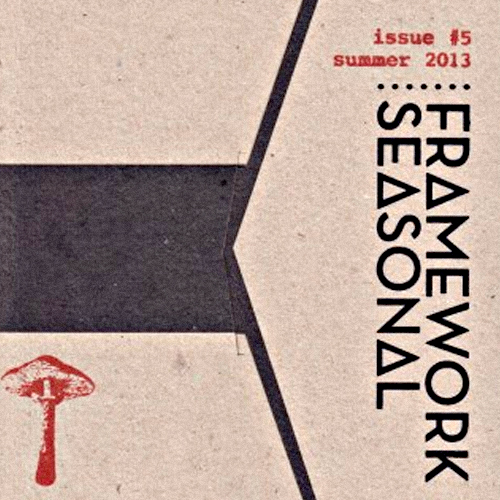Framework Seasonal -Issue #5 Summer 2013-
THE DERBY TAPE RECORDING CLUB,
THE LEICESTER TAPE RECORDING CLUB
Edited and compiled by MARK VERNON
(Framework 2013)
Review by David Vélez
Sound artist and composer Mark Vernon compiled recordings made by Tape Recordings Clubs during the 60’s and 70’s in the UK and published them as part of the Framework Seasonal series. The result is a collection of captures that transports the listener 40 and 50 years ago to times when things sounded different to what they sound now: cars sounded differently, popular music sounded differently, people spoke differently…and recorders recorded differently too.
Sometimes pleasant results arise when artists convert a research process in a creative publishing process, resulting on an actual release like it happened on this case.
On a first listen what interested me the most are the subjects of these amateur recordings. Cars, bikes, circus fairs, markets, shops, alarms, ballroom parties, birds, children singing…quotidian stuff that the members of these recording clubs believed relevant or simply fun to record.
But it is not necesarelly any car, any bike, any circus or any children what we listen. On many of these recordings we hear environments, objects and people who had a emotional personal connection with the recordists. For us as listeners they just become random and impersonal things and people.
On many of these recordings we can listen to the recordists making some sort of verbal introduction to the recordings, usually talking about the subject that they were recording. It is like they felt that the sound alone was not illustrative enough unlike it would happen with photo or video.
They are also many dialogues between the recordist and the people subject of many of these captures. Seems to me like most of the recordists of these clubs were primarily interested in the subject and the action of recording it than in the sound per se. Their quest was documental within their own ‘amateur’ approach. It was the possibility of leaving a trace of the people and things that mattered then and preserve it on time what was important for them. People disappear but photos, film and recordings might not.
To me the main value and interest of ‘Framework Seasonal -Issue #5 Summer 2013-‘ is its potency to activate the listener imagination in terms of not only depicting environments, objects and people, but also depicting them on a different moment in history that many listeners did’t happen to experience and can only relate to via archive media and spoken world.
All the descriptions from our parents and grandparents, all the photos and footage from that time that we have seen are now activated by the sounds on ‘Framework Seasonal -Issue #5 Summer 2013-‘ in a rewarding and stimulant listening exercise that, as a listener,
I largely enjoy.
From the liner notes
‘…a selection of vintage amateur field recordings from two East Midlands tape clubs: The Derby Tape Recording Club and The Leicester Tape Recording Club. These are not pristine archival recordings, they bear many traces of their age and origin: tape hiss and distortion, harsh pause button edits, wow and flutter. Accepting these extraneous audio artefacts as inherent to the medium of tape, no attempts have been made to clean or restore them. The little known phenomenon of tape recording clubs reached its peak in the 60s and 70s, as tape recording technology became more attainable to the hobbyist. Many of these recordings were made in the days when recording outdoors entailed lugging a heavy and cumbersome open-reel recorder out and about on location. This could prove impractical for the individual so being part of a club, with the associated benefits of pooled resources and shared knowledge, made things a little easier. The appearance of affordable portable battery recorders in the early 60’s granted tape enthusiasts unprecedented freedom as to what and where they could record, a freedom which most tape club members exploited to the full. Some of these recordings were made on organised outings as part of the tape club’s programme of activities, others were made independently by individual members. The variety and imagination displayed here is a testament to the pioneering spirit of a dedicated group of amateurs, our forebears in the pursuit of recorded sound.’
[Photographies courtesy of Framework]



